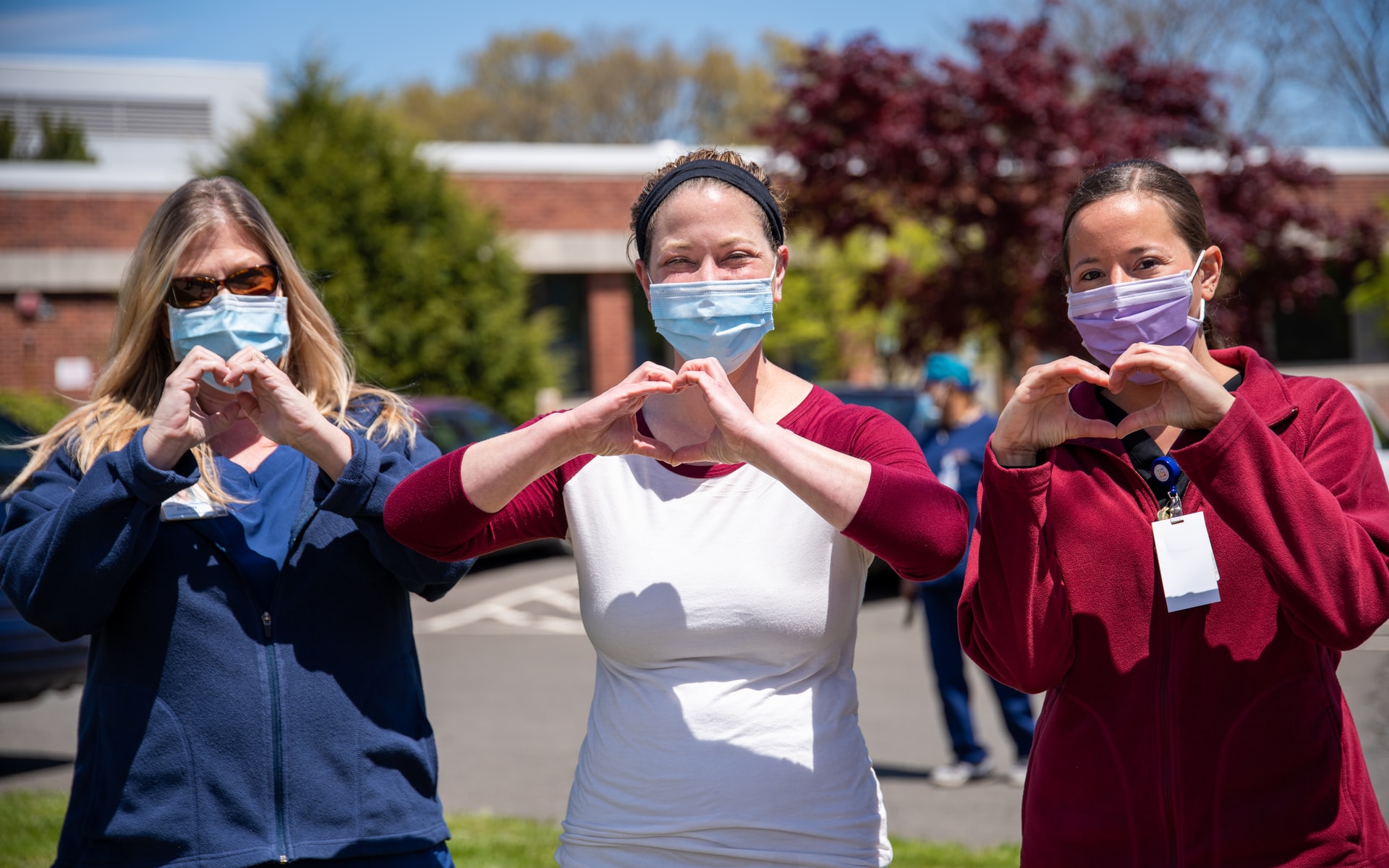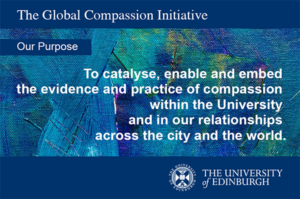Compassion in the time of Corona

In the last chapter of Gabriel Garcia Marquez’s novel Love in the time of Cholera, Florentino commands the captain of the river boat to raise a yellow flag signifying cholera on board. Passengers already on the boat get off, no new passengers embark, leaving Florentino, and the widowed Femina together to love. The flag created a place of separateness – finally allowing a flowering of a deep relationship. There is a metaphorical yellow flag flying across the UK.
The periods of quarantine and the national lockdown triggered by the COVID-19 pandemic have echoes of that boat journey in Marquez’s short novel. Hemmed in, with all our movements and interactions constrained, many are experiencing rising fear, anxiety, exhaustion, frustration and anger. With the rapid implementation of special measures such as the erection of new hospitals, repurposing of wards, closing of schools, banning of all gatherings, changes to our working conditions, there is much uncertainty and confusion as to how to manage at a human level, the complex relationships altered by the pandemic. And it is within these relationships that life is lived. And lost.
It is also in the interstices of these relationships that compassion lives. Compassion can fill the space and join the separate and broken pieces. We have seen exceptional moments of compassion. There are the very visible moments, the signup of 750,000 people to the NHS Volunteer Scheme, the clapping for the NHS, care services and key workers across every city and village. And then there are countless unseen acts of compassion within communities, with neighbours checking in on neighbours, or customers purchasing the groceries of strangers who had clearly come off long NHS shifts as a signal of gratitude for the life sustaining goodness of the health service.
This compassion didn’t start with COVID-19, it was always there in people, but the pandemic has given us a space to see it and permission to be compassionate. We have taken this demonstration of compassion for granted, and yet there is something very significant about this. We have seen outpourings of love and kindness many times before in the UK. Now, in this time of COVID-19, we call them out as they seem so different to the normal, but in fact because we are living in a ‘new normal’ a light is now being shone on what actually happens every day in every town across the UK. What was hidden and unremarked upon is being noticed as an essential part of our existence – enabling us as a society to keep faith in the future and to believe that we can get through this.
There is an opportunity now to hold onto what we have, and to celebrate and grow it. Compassion can become a driver of change. Worline and Dutton, in their book Awakening Compassion at Work define compassion as essentially relational. It consists of noticing the suffering of others, looking to understand the meaning of that suffering, feeling empathic concern, and most significantly taking action to relieve that suffering. It is not just sympathy or empathy, but involves an active cognitive process to address pain, distress or suffering and by virtue of this, to enhance wellbeing. Such compassionate action, the psychologist Paul Gilbert suggests, often involves individual acts of courage—to support colleagues in distress, to stand up for those oppressed, to tell truth to power, to challenge authority when the wrong course has been taken. We have seen all of these during the past month of the COVID-19 pandemic in the UK and around the world. If the intention of such courageous challenge is to address or prevent suffering, that in itself it is a compassionate action.
We see daily the terrible toll that the pandemic is taking on human life across the planet, and on the lives of grieving relatives and friends. We are also becoming aware of the grave economic cost of what Tim Harford has called ‘putting the economy in a coma’. And we know that harsh as they are in the UK these effects on human life and on the economy will be far worse in low and middle income countries where health systems are under resourced and economies dependent on global links. Strategies such as curfews and lockdown for protection against the spread of COVID-19, have already seen women die in childbirth unable to get to the hospital, the families of daily wage earners going hungry, extended family households locked down in single rooms with no protection as disease spreads from children to elderly grandparents, hospitals understaffed as nurses have no way to reach their place of work because of rising prices of matatus and the ban on cheaper boda bodas ( motorbikes) of carrying passengers. Unintended consequences of intentional efforts to stave the pandemic.
It is also paradoxical that the consequences of the interventions to contain the disease and mitigate its impact have contributed more to tackling climate change in these few weeks than the Conference of the Parties (COP) have achieved in years of effort. Paradoxical, not only because climate change and its direct and indirect impacts on human health and the health of the planet are on track to kill far more people than COVID-19 will do, but that climate change itself was a major driver of the disease. Carbon emissions have gone down and the skies clearing with unprecedented flight reductions, and the cutback in the use of fossil fuels. It is a terrible irony that a new virus which impairs the ability of human beings to breathe has shown compassion to the planet, producing a breathing space for the planet, and providing the clean air for natural ecosystems to thrive.
How do we reimagine the future? How do we maintain these planetary gains while restoring incomes to those who now have none? How do we ‘build back better’? How do we avoid merely returning to the status quo ante, which has produced catastrophic changes in the climate to such a degree that the survival of many species, including the human one, is threatened within a few decades?
As we have seen in these days, it is our acts of compassion that are transformative. By noticing and acting to alleviate suffering – at community, national and international levels – will we find our way through the acute, complex challenges of this pandemic – learning lessons that build towards healthier, more balanced and happier communities globally.
Theodore Roethke, the American poet, suggested that ‘in a dark time, the eye begins to see.’ We have been given a chance to see, in this, the greatest crisis of our age how we can successfully move forward.
An abridged version of this article was originally published in The Sunday Times: https://www.thetimes.co.uk/article/acts-of-compassion-ingrained-in-lockdown-can-help-us-after-covid-19-say-scots-academics-jhhll5tmq
Written by the Global Compassion Initiative
Liz Grant. Assistant Principal, Professor of Global Health and Development, University of Edinburgh
John Gillies. Honorary Professor of General Practice, Usher Institute, University of Edinburgh
Kirsty McGregor. CEO The MacGregor Leadership Consultancy/ member of the University of Edinburgh General Council Business Committee
Paul Brennan. Senior Clinical Lecturer and Honorary Consultant neurosurgeon, University of Edinburgh
Wendy Ball. Consultant and Senior Fellow, Global Health Academy, University of Edinburgh
Harriet Harris. University Chaplain and Head of Chaplaincy Service, University of Edinburgh




